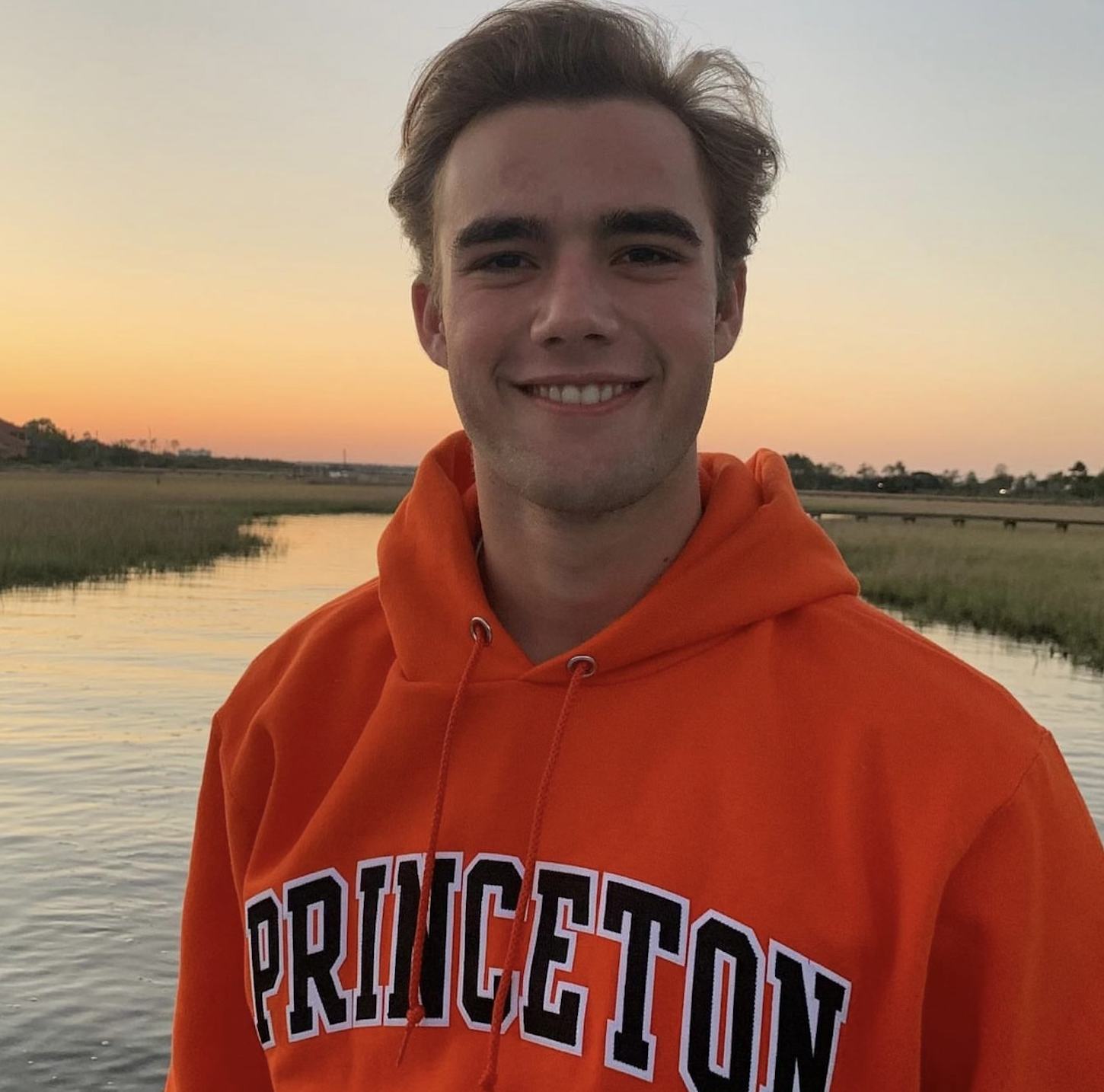Weaponizing Obscure Passions: How a Love for Cartography or Perfume Chemistry Got Ivy Brothers Students Into Stanford
Ivy Brothers
Weaponizing Obscure Passions: How a Love for Cartography or Perfume Chemistry Got Ivy Brothers Students Into Stanford
Elite college admissions are often seen as a numbers game — GPA, SAT scores, AP classes, competition placements. But at Ivy Brothers, we know that what truly sets applicants apart isn’t the metric everyone is chasing. It’s the story no one else can tell.
In recent years, we’ve seen students get into Stanford not because they followed the most conventional path, but because they dared to lean into the unconventional. They didn’t try to look like everyone else — they went deep into what made them different. From ancient cartography to perfume chemistry, students turned obscure, highly personal interests into compelling narratives that caught the attention of admissions committees trained to spot authenticity, originality, and drive.
This isn’t just about “being different.” It’s about being unforgettable. And that’s something Ivy Brothers specializes in.
The Myth of the Ideal Applicant
Let’s start with a truth that most applicants — and sadly, many counselors — overlook: There is no one-size-fits-all Ivy League or Stanford applicant.
Too many students spend high school trying to craft a resume they think admissions officers want. President of three clubs? Check. Volunteered 100+ hours? Check. APs in everything? Double check. And yet, every year, thousands of these high-performing students are denied from top schools.
Why?
Because elite universities aren’t looking for “perfect.” They’re looking for particular — students who show intellectual spark, genuine curiosity, and a distinctive point of view.
They want to admit the future engineer who spent years designing board games based on supply chains. The philosopher who uses TikTok to explore ethical dilemmas in 60-second reels. Or the aspiring neuroscientist who started exploring scent because she wanted to understand why certain smells made her feel like she was seven years old again.
These stories don’t come from checking boxes. They come from turning inward and asking: What is it I really care about? And how far am I willing to take that curiosity?
That’s where Ivy Brothers comes in.
From Side Hobby to Stanford Spotlight: Real Student Stories
Case Study 1: The Mapmaker
When this student first came to us, she apologized for her main interest.
“I know it sounds random,” she said, “but I really love maps.”
What started as a childhood hobby — tracing the outlines of fictional continents — had turned into a quiet obsession with old atlases, colonial borders, and how maps shape narratives of place and power.
At school, no one really understood it. Teachers appreciated her academic performance, but her passion didn’t fit neatly into any club or competition. She wasn’t winning geography bees. She was sketching alternative histories, studying how redlining worked through maps, and collecting Soviet-era topographies off eBay.
Through our process, we didn’t try to fit her into a mold. We helped her amplifywhat she was already doing:
• She wrote a Stanford supplemental essay about mapping her immigrant grandparents’ journey using oral histories and geographic overlays.
• She started an independent research project with a local urban studies professor, analyzing how unofficial community maps reflect the lived experience of gentrification.
• We crafted her personal statement around how maps taught her to question the narratives of “truth” she was taught in textbooks.
The result? Her Stanford application wasn’t just smart. It was singular. Admissions officers remembered her — not as “another great student,” but as the map girl. And that made all the difference.
Case Study 2: The Perfumer
Another Ivy Brothers student came to us with an unusual dilemma: she had fallen in love with the chemistry of fragrance — but wasn’t sure how to connect that to anything “college-worthy.”
Her journey started innocently enough: a summer hobby of mixing essential oils. But as we worked with her, we uncovered a much deeper current. She had begun reading scientific literature on olfactory receptors. She was curious about how scent memory could be used in therapeutic settings. She even designed a line of perfumes inspired by historical revolutions — blending notes of tobacco, leather, and citrus to evoke France in 1789.
Together, we helped her:
• Launch a blog analyzing the intersection of chemistry, memory, and culture through scent.
• Conduct interviews with independent perfumers and scent scientists.
• Frame her Stanford short answers around the question: What does it mean to “know” something through smell?
Her passion became a platform to showcase her interdisciplinary thinking — merging science, art, psychology, and entrepreneurship. Stanford didn’t just admit her. They saw her as someone who would thrive in their maker labs, chemistry courses, and creative communities alike.
What Obscure Passions Reveal to Admissions Officers
To many, these interests might seem like side notes — charming but irrelevant. But to elite admissions readers, they’re signals. They say:
• This student is curious for the sake of curiosity.
• This student pursues ideas even when no one else is watching.
• This student brings a perspective we won’t find in 10,000 other applications.
In a competitive field, difference is not a risk. Done right, it’s a competitive advantage.
Admissions readers — especially at places like Stanford — are exhausted by sameness. They’re actively looking for thinkers, builders, explorers, tinkerers, and storytellers. Not because it’s trendy, but because it reflects the kind of mind that flourishes in an open, interdisciplinary academic environment.
The Ivy Brothers Method: Turning Passion Into Power
Our approach isn’t to fit students into a narrow definition of excellence. It’s to draw out the exceptional already present in them — even when it’s buried beneath self-doubt or dismissed as “just a hobby.”
Here’s how we help:
1. Passion Discovery
We start by having real, in-depth conversations with students — not just about achievements, but about the strange rabbit holes they’ve gone down, the questions they can’t stop asking, the books they read when no one’s watching.
2. Depth Mapping
We identify where there’s intellectual or emotional richness that can be deepened. We often help students develop independent research, creative projects, or mentorships around their passion — not to pad a resume, but to live the interest fully.
3. Narrative Framing
Through essays, portfolios, and interview prep, we help students craft a cohesive story around their niche. Not one that tries to justify their interest, but one that celebrates it — and connects it to who they are and who they’re becoming.
4. Strategic Positioning
We align their application with programs, faculty, or values at their target schools — whether it’s Stanford’s d.school, MIT’s Media Lab, or Brown’s open curriculum — so that admissions officers can immediately see fit.
Final Takeaway: Don’t Hide the Weird. Hone It.
If there’s one message we want every student to hear, it’s this:
Your oddball passion — the one you think is too random, too nerdy, too “non-academic”? That’s your edge.
Whether it’s bird watching, algorithmic art, translating medieval poetry, or hand-binding books — if you care about it deeply, we can help you turn it into a defining feature of your application.
Because the secret of Stanford, and every other top-tier school, isn’t perfection. It’s voice. It’s vision. It’s vividness.
And at Ivy Brothers, that’s exactly what we’re here to help you find.
Ivy Brothers | Elite Admissions Coaching for Original Thinkers
We don’t make students impressive. We make them unforgettable.
Let’s find the story only you can tell — and help the world listen.
Visit our website: www.theivybrothers.com
Schedule a consultation: https://tally.so/r/3Edv7
See More Posts
Ivy Brothers
Copyright © 2021 Ivy Brothers, Inc. All rights reserved.
Company
hello@theivybrothers.com



